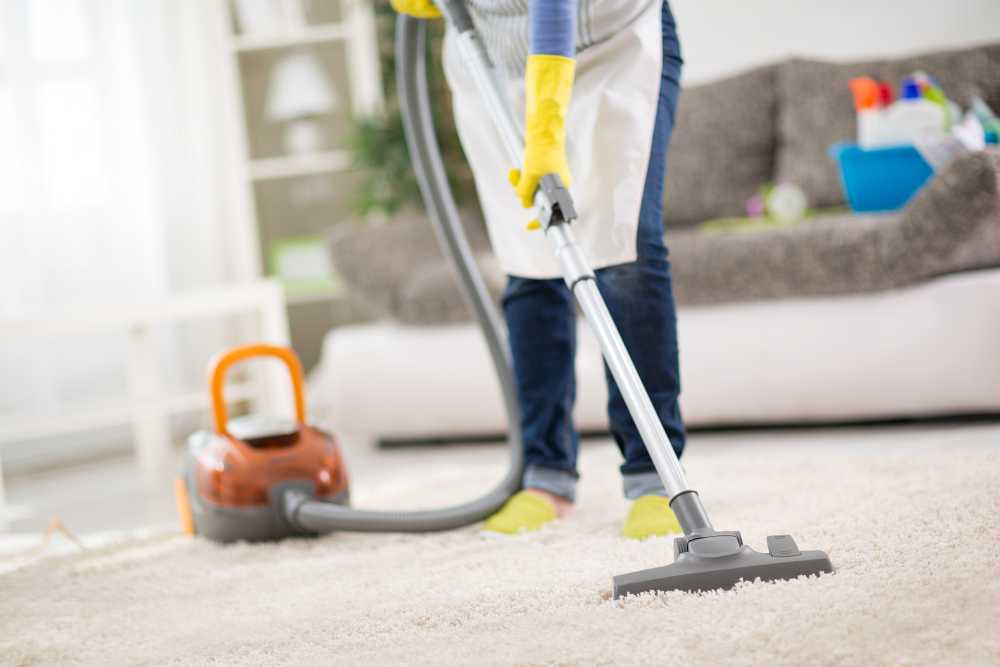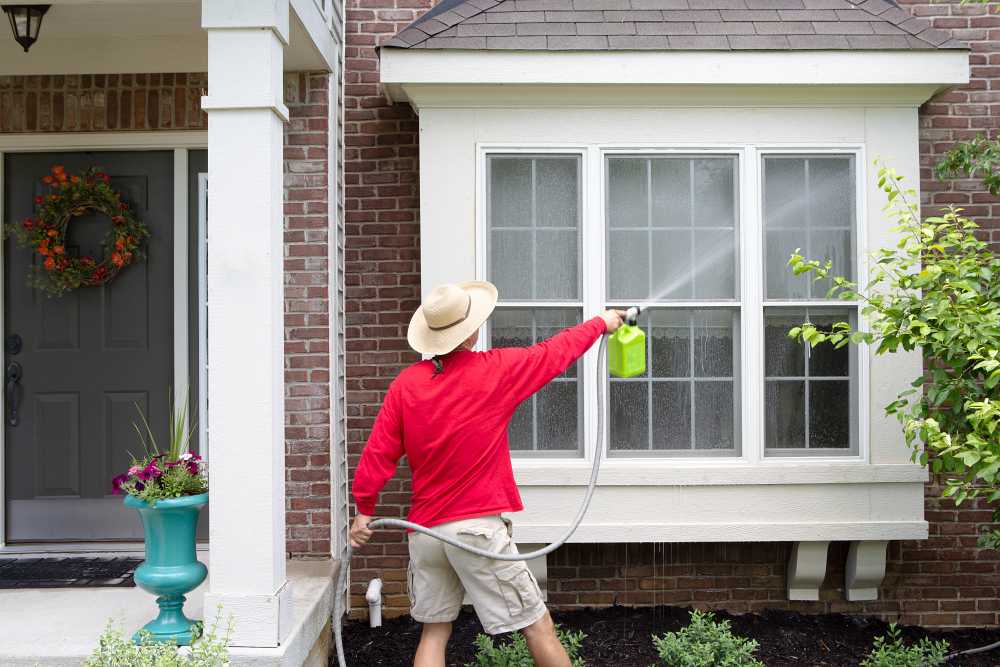Spring home prep can feel daunting and it’s tempting to procrastinate. To help you get started, it’s a good idea to create a Spring home prep checklist. This way, you’ll know your priorities and make sure you can check all those boxes.
So, how do I begin preparing my home for Spring? First, let’s acknowledge there is no right or wrong answer. Your home is your home, which means you’re in control and you get to decide what actions are sensible and which actions take priority.
When you approach a big project, it’s always a good idea to see if you can find ways to break down the larger and more intimidating tasks into smaller bite-size chunks. That’s what a Spring home prep checklist can help you do.
Spring Home Prep Checklist
Some will suggest frontloading your list with harder tasks so you can get them out of the way. Others will encourage starting with smaller tasks that can easily be checked off your list so you are continuously feeling a sense of accomplishment. The key is to do what feels right for you and what keeps you going. Once you’ve discovered a strategy that helps you complete your goals, then you’ve accomplished an important aspect of tackling Spring home maintenance.
Exterior Inspection
- Outer walls
- Check for signs of damage or wear and tear that might be a cause for concern.
- Water stains may indicate that your gutters are not functioning as they should be.
- Look for any areas where it looks like bugs or other pests could find entry into your home.
- Windows
- Signs of leakage suggest caulking and weather stripping may need to be replaced.
- You’ll want your windows to be well-sealed to lower your electricity bills and prevent pests from entering your home.
- Foundation
- If you notice any cracks in your house’s foundation you need to consult a professional. This is not a DIY situation!
- Chimney
- If you have a chimney, make a note that you want to have the chimney sweep come take a look. Chimneys should be inspected annually for optimum safety.
- Gutters and Downspouts
- Inspect your gutters and downspouts to see if there is any visual damage.
- A/C Systems
- You’ll want to clean any weeds or other plant growth near your A/C compressor for safety.
- Trees
- Walk around your property and inspect trees that may have been damaged by winter storms, lightning strikes, pests, disease, decay, or other potential reasons.
- Damaged and dying trees may require trimming to avoid concerns about a falling tree damaging your property or your neighbor’s property.
Outdoor areas of your property should be inspected for damage. Check window sills, railings, deck areas, and make sure everything appears to be in order. If you have wood flooring on your deck or porch you may want to consider repairing and resealing. This is also true for wooden fencing.
Easy Goals to Tackle on Your 2023 Spring home prep checklist:
As you begin to think about Spring home prep, getting a few of the smaller tasks out of the way will help you feel empowered to tackle the larger and more time-consuming tasks.
- Replace the batteries in your smoke detectors.
- Check on the functionality of your carbon monoxide detectors. Carbon monoxide detectors typically need to be replaced every five to seven years.
- Basic dusting throughout your home.
- Washing curtains and fabric drapes.
- A damp fabric or microfiber cloth is all that is needed to clean vinyl or wooden blinds.
- If you have ceiling fans, then clean the dust off the blades.
- Vacuum upholstered furniture.
- Consider renting a carpet cleaner, especially if you have pets.
- Removal of dust, dust mites, and other allergens will help reduce indoor air pollution and provide a safer space for you and your family.

- Check on and consider tune-ups for lawn maintenance equipment.
- If you have a gas grill, check the hoses and connections. Be sure to check the burner jets for any obstructions. You’ll want to clean the grill and make sure it is safely operational before you plan any events.
- If you have a charcoal grill, it’s a good idea to spend some time removing debris and residue. It’s important to do this regularly if the grill is in frequent use as build-ups of ash and grease can be dangerous.

- Check on and consider tune-ups for lawn maintenance equipment.
- If you have a gas grill, check the hoses and connections. Be sure to check the burner jets for any obstructions. You’ll want to clean the grill and make sure it is safely operational before you plan any events.
- If you have a charcoal grill, it’s a good idea to spend some time removing debris and residue. It’s important to do this regularly if the grill is in frequent use as build-ups of ash and grease can be dangerous.

1. The Kitchen
Time to thoroughly clean your fridge! While you’re at it, clean your oven, microwave, toaster, and any other appliances.
Appliances that are in regular use do not have to be spotless! Your microwave, toaster, kettle, and other small appliances are likely to get messy from frequent use. The best approach is to clean these items on a semi-regular basis to ensure they do not reach a level of grunginess where it becomes frustrating to clean them.
After you’ve checked off a few of the boxes, hopefully, you’re feeling a sense of satisfaction. Inspection is a big part of home prep as you’ll want to leave the serious fixes to the professionals.
2. Clean your windows and screens
No one likes this chore but it does eventually have to get done. If it makes you feel any better, your mom would be proud!
Checking for small holes in screens means you can avoid bugs and other critters finding their way into your home.
Remember: never power wash screens as this is likely to damage them.

3. Attics and Basements: Inspecting, Cleaning, Replacing, and Servicing
Attics can be a source of mold growth that can affect the air quality and general safety of the household. Gray or black blotches may simply look like stains, but could be mold and should be properly inspected to confirm.
- Drain your water heater. Over time, sediment builds up. Regular cleaning prolongs the life of the unit and reduces your electric bill.
- Inspect your washing machine and dryer hoses for cracks.
- Make sure your sump pump is operational.
- Replace HVAC air filters.
- Clean and service your air conditioning systems or A/C units. Check for moisture in your basement as this could be a sign of A/C leakage.
Prep Your HVAC System
A professional HVAC technician can inspect your system, identify any issues, and make necessary repairs or adjustments. As Spring arrives, a tune-up can help ensure that your system is running at peak efficiency and reduce the risk of breakdowns.